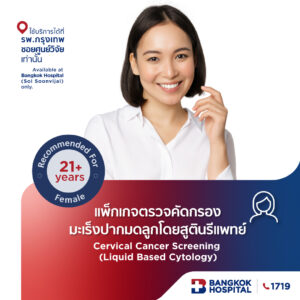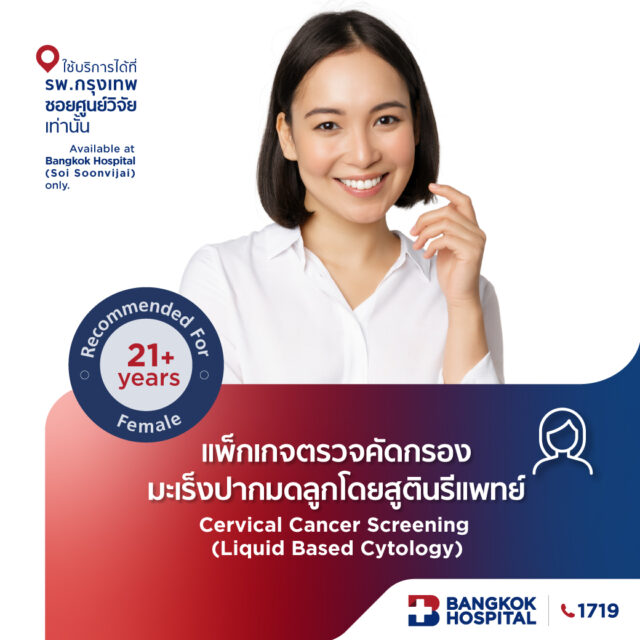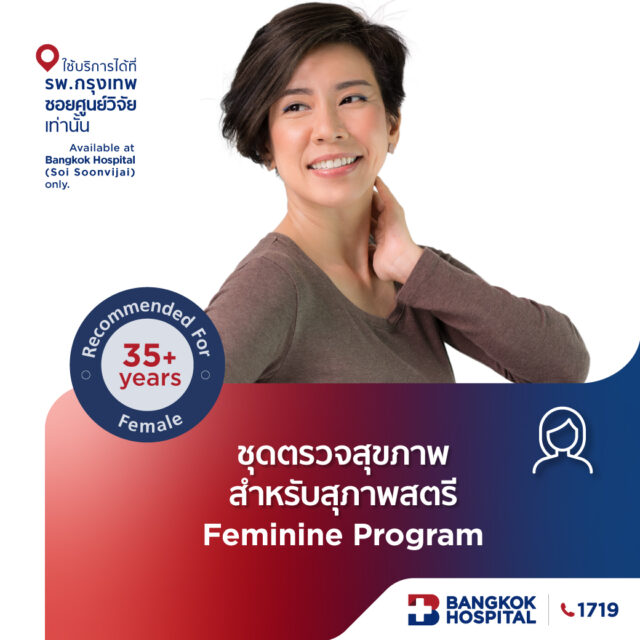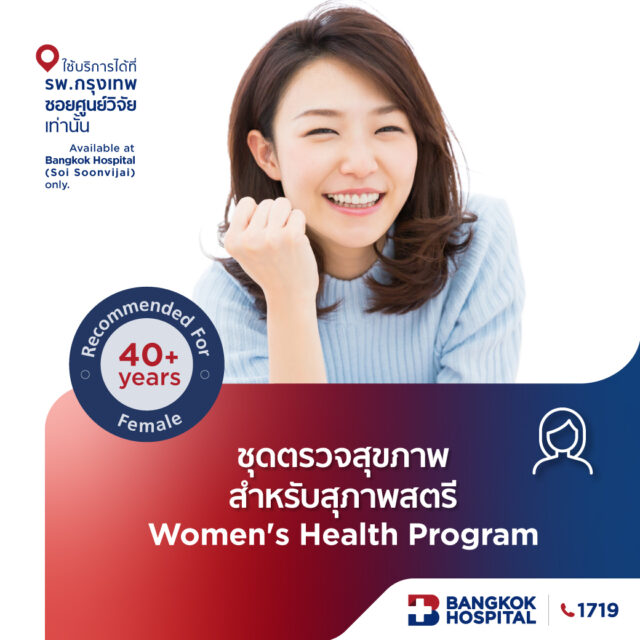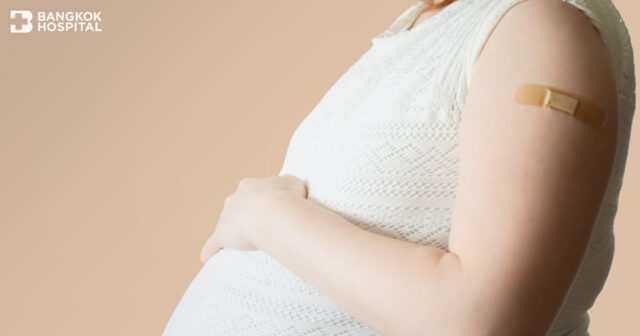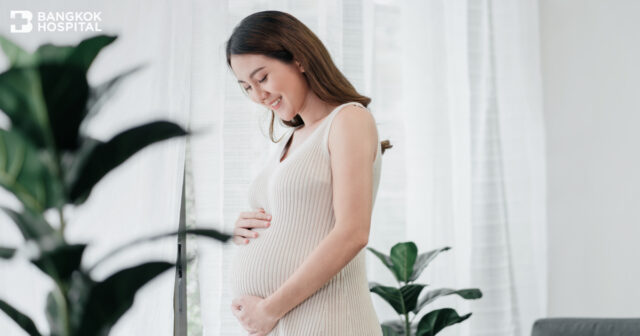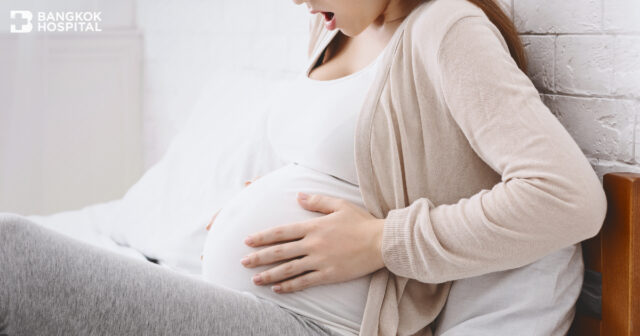The situation of the COVID-19 pandemic continues to evolve. Therefore, pregnant women must take strict care of themselves and their babies according to the doctor’s recommendations because if pregnant women contract COVID-19, not only do they tend to have more severe symptoms than the general population, but they also have an increased risk of mortality
Pregnant Women and COVID-19
- More than 2 in 3 pregnant women infected with COVID-19 often show no symptoms
- Pregnant women infected with COVID-19 who have severe symptoms often have obesity, are older, have chronic pre-existing conditions such as diabetes, high blood pressure, heart problems, etc.
- Pregnant women infected with COVID-19 have a 2 – 5% chance of transmitting the virus to their baby
- Pregnant women infected with COVID-19 have a 15.1% chance of preterm birth
Information: Department of Health, Ministry of Public Health
Symptoms in Pregnant Women with COVID-19
- Fever
- Dry cough
- Fatigue
- Difficulty breathing
- Sore throat
- Diarrhea
Treating Pregnant Women with COVID-19
- Hydration, correcting electrolyte imbalances, oxygen
- Antiviral medication for pregnant women with moderate to severe symptoms
- Antibiotics if a bacterial infection is present
- Mechanical ventilation in cases of severe symptoms, based on doctor’s assessment
Limitations in treating pregnant women with COVID-19 include the use of certain medications which may have side effects and pregnant women cannot lie prone to receive sufficient oxygen, thus may require mechanical ventilation to increase oxygen levels
Risks When Pregnant Women Are Ill with COVID-19
- Preeclampsia
- Preterm birth
- Abnormal coagulation
- Babies born to mothers infected with COVID-19 are more likely to be born preterm and with a lower than normal weight
- Pregnant women in early stages of pregnancy have a lower chance of transmitting the virus to the unborn baby compared to those closer to delivery
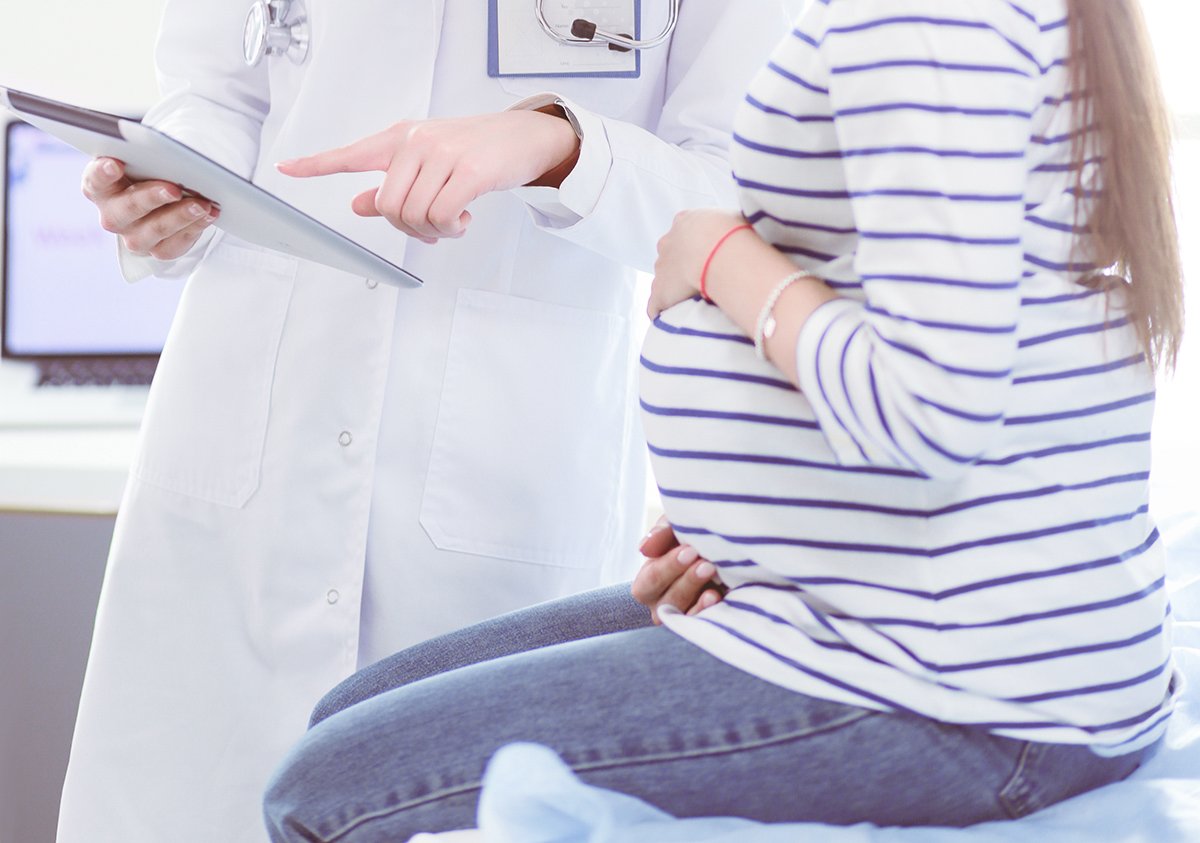
Prenatal care during COVID-19
Pregnant women during the COVID-19 period can continue prenatal care as usual, but those who are more than 32 weeks pregnant, in high-risk pregnancy groups, or have pre-existing conditions like high blood pressure, diabetes, thyroid diseases, heart disease, asthma, chronic lung diseases, kidney diseases need to take very strict precautions, including:
- Attending all doctor’s appointments, scheduling appointments in advance to minimize time spent at the hospital
- Avoid traveling by public transport
- No more than one person should accompany
- Wear a face mask at all times when outside the home
- Frequent hand washing, carry hand gel or alcohol spray at all times
- Maintain at least a 2-meter distance from others in all activities
- Upon returning home, wash hands, dispose of the mask immediately, change clothes
- Watch for pregnancy abnormalities such as swelling, reduced fetal movement, vaginal bleeding, abdominal pain, water breaking, and see a doctor immediately if any symptoms occur
- In the first 3 – 6 months of pregnancy, if no special examinations are required, appointments may be postponed according to the situation
Pregnant Women with COVID-19 and Breastfeeding
According to the Department of Health, Ministry of Public Health, there is no academic evidence of virus transmission through breast milk. Therefore, babies can be breastfed, but infection prevention measures must be strictly followed
- Mothers suspected or confirmed with COVID-19, but with mild symptoms, can hug and breastfeed their child, but must wear a mask and wash hands frequently
- Mothers with COVID-19 who have severe symptoms and are taking Favipiravir (Favipiravir) and Darunavir (Darunavir) should not breastfeed
Pregnant women must take the best care of themselves, attend scheduled doctor’s appointments, and get vaccinated against COVID-19 after 3 months or 12 weeks of pregnancy as recommended by the doctor. Wear masks, maintain distance, wash hands frequently, reduce the risk of COVID-19 infection. Importantly, take care of mental health, avoid excessive stress or anxiety, listen to information from reliable sources, and if pregnant women fall ill with COVID-19, they must enter the treatment system as soon as possible


